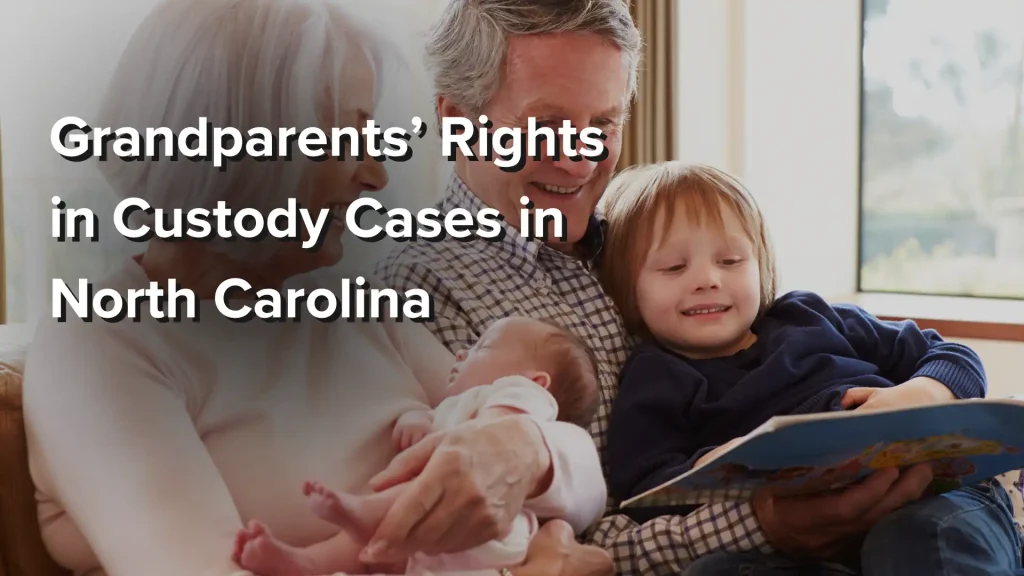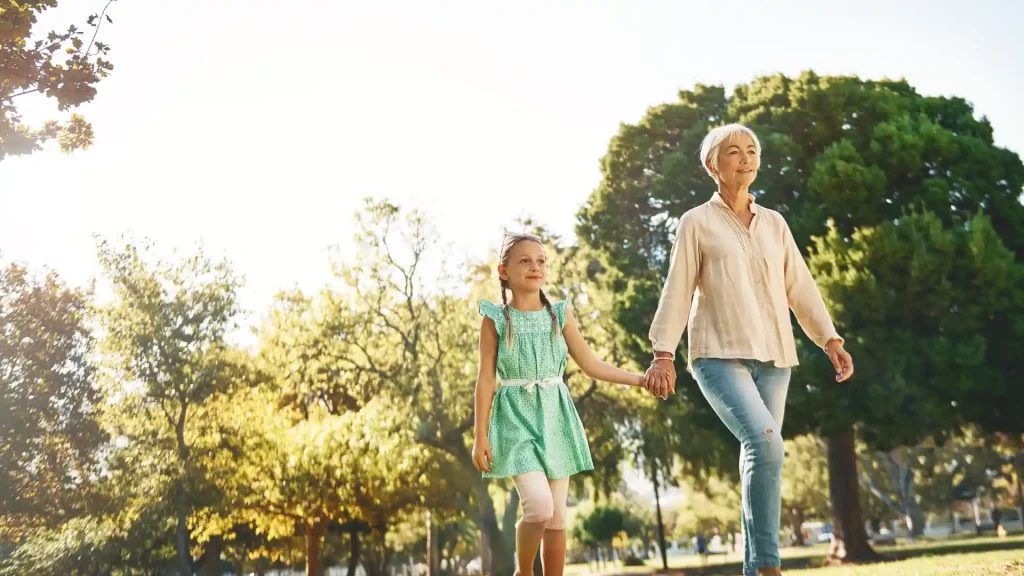 Grandparents can often provide the steady hand children need when life turns upside down. Divorce, addiction, or legal trouble can raise a tough question: Can I step in and get custody advocacy from parents? Understanding grandparents’ custody rights can protect a child’s stability and well-being.
Grandparents can often provide the steady hand children need when life turns upside down. Divorce, addiction, or legal trouble can raise a tough question: Can I step in and get custody advocacy from parents? Understanding grandparents’ custody rights can protect a child’s stability and well-being.
North Carolina law may grant grandparents custody rights, but this isn’t guaranteed. Child custody attorneys in Raleigh help families push past obstacles and focus on what matters most: protecting the child’s best interests.
Do Grandparents Have Custody Rights?
Yes, but those rights don’t mirror a parent’s rights. Grandparents don’t start with automatic standing in custody cases. Instead, they need to show that their relationship with the child is significant and that custody or visitation rights serve the child’s emotional or physical well-being.
North Carolina recognizes that, in some cases, a grandparent may offer a safer, more stable environment than the child’s parents. This typically happens when:
- One or both parents are unfit due to addiction, neglect, or abuse
- The custodial parents have passed away or lost parental rights
- The child has already been living with the grandparent for an extended period
Family court gives grandparents the right to petition for custody or visitation, but only under specific circumstances. Timing matters, and so does the existing family dynamic.
Types of Custody Available to Grandparents
When seeking custody of grandchildren, grandparents may request either legal custody, physical custody, or both. Each type carries different responsibilities and decision-making power.
Legal custody allows a grandparent to decide about the child’s healthcare, schooling, and upbringing. Physical custody means the child lives primarily with the grandparent. Courts may award sole or joint custody depending on the situation.
In some cases, grandparents also pursue guardianship. Guardianship gives grandparents the legal authority to care for the child without permanently severing the parents’ rights. This option often helps when a parent faces temporary hardship, such as incarceration or a health crisis.
North Carolina also allows for third-party custody, where a non-parent receives custody if the court believes it’s in the child’s best interest. Grandparents often fall into this category, especially when they’ve played a consistent caregiving role.
Legal Standards for Grandparents Seeking Custody
Courts don’t remove children from their parents lightly. Grandparents must meet specific legal standards to gain custody. First, they must prove standing – a legal basis even to request custody.
To have standing, grandparents must show that:
- The parents are unfit or have acted inconsistently with their parental rights
- The child has lived with the grandparents for a substantial amount of time
- They have a strong, bonded relationship with the child that supports their well-being
After grandparents prove standing, the court applies the best interest of the child standard. Judges consider what will support the child’s safety, growth, and emotional well-being. That includes:
- Whether each home provides routine and a sense of security
- The physical and mental health of each adult involved
- The strength of the child’s bond with each caregiver
- Any history of abuse, neglect, or instability
- Each adult’s ability to meet the child’s medical, educational, and emotional needs
Judges examine each factor comprehensively. Even if a grandparent offers a loving home, they must show that it is a better option than the child remaining with the parents.
Proving Parental Unfitness for Custody
Parents have a constitutional right to raise their children. For grandparents to win custody, they often must show that the parents are unfit.
Evidence that may prove unfitness includes:
- Documented substance abuse
- Untreated mental illness
- Criminal behavior or incarceration
- History of physical abuse or neglect
- Abandonment or repeated absence
Courts require more than suspicion or family conflict. Grandparents should prepare detailed records, witness testimony, and supporting documents from school counselors, doctors, or social workers.
Unfitness does not always need to be extreme. Courts may also consider emotional instability, failure to provide basic needs, or patterns of unsafe behavior.
Please read more about punishment contempt in the family court here: What Is the Punishment for Contempt of Family Court in Raleigh, NC?
Grandparents’ Visitation Rights in North Carolina
Not every case involves a complete custody request. Some grandparents want the right to maintain a relationship with their grandchildren, especially after a divorce, estrangement, or the death of a parent.
North Carolina allows grandparents to seek a child custody and visitation rights agreement in two specific scenarios:
- During an ongoing custody dispute between the parents
- After the death of one parent, if the surviving parent limits contact
Even then, grandparents must prove that visitation supports the child’s best interests and that denying contact would cause emotional harm. Visitation doesn’t guarantee overnight stays or holidays, but may include regular contact or scheduled visits.
Legal Steps for Grandparents’ Custody
 Grandparents who want custody must take several straightforward steps. The legal process follows a set order, and each step builds the foundation for the next:
Grandparents who want custody must take several straightforward steps. The legal process follows a set order, and each step builds the foundation for the next:
- File a Custody Petition – Grandparents must file in the family court in the child’s county. The petition should outline the legal basis for seeking custody.
- Serve Notice – Parents must receive formal notice of the custody action.
- Attend Mediation or Hearings – Some counties require mediation before a hearing. The court may appoint a guardian ad litem for the child.
- Present Evidence – Grandparents must present facts, testimony, and records supporting their claim.
- Comply with Court Orders – Grandparents must follow court-ordered schedules and guidelines if custody or visitation is awarded.
A strong petition shows the court that the grandparents are not stepping in to interfere but to protect the child from harm or instability.
Family Court and Grandparents’ Rights
Judges in family court look at everything through the lens of the child’s well-being. They know strong bonds with grandparents can offer comfort, routine, and a sense of home during hard times.
Still, the law gives parents strong constitutional rights. Courts tread carefully before giving custody to someone else. Grandparents must prove that staying with them serves the child better than staying with a parent, which often means meeting a specific parent requirement set by the court to show why a change in custody is in the child’s best interest.
When the situation doesn’t support full custody, judges may approve a temporary placement, structured visitation, or a chance to revisit the request later.
How Marshall & Taylor PLLC Can Help
Custody battles strain families, especially when the fight involves your child or grandchild. At Marshall & Taylor PLLC, we understand these cases’ emotional and legal stakes. Our child custody attorneys in Raleigh help grandparents take the proper legal steps to protect their grandchildren while respecting family dynamics.
Whether you’re seeking custody, visitation, or guardianship, we’re ready to advocate for your and your grandchild’s future. Our team is here to help you understand your rights and take the first step toward securing the necessary benefits. Contact us online or call (919) 833-1040 to schedule a confidential consultation.
Related Post
Foster parents celebrated for their commitment to caring for children
